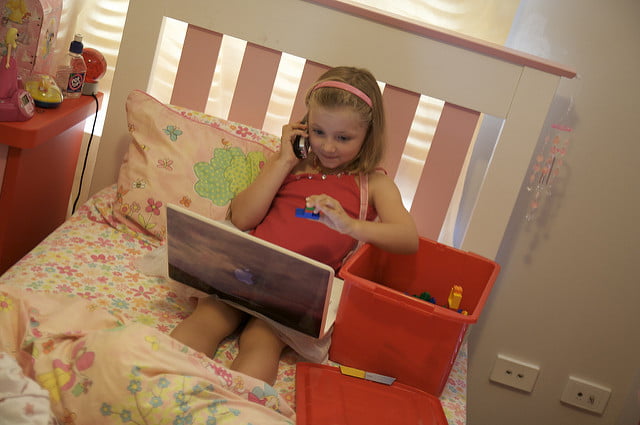Divorce brings a lot of change, including, of course, one spouse moving to a new home. For children, seeing their parents live separately is hard enough. But if one parent moves to a new city or state, that separation feels even worse.
Just as you no doubt will miss your child if you moved, he or she may feel intense grief, maybe feeling as though you are lost in some way to him/her. Divorce makes things harder, because children may feel it’s more difficult to reach out to the non-custodial parent due to loyalty conflicts. If you and your partner do not get along and now live in different cities or states, it’s important to stay in touch as much as possible with your children. While of course you will no doubt speak on the phone regularly, here are some other ways to bridge the distance, both geographical and emotional.
Six Ways Parents Can Bridge the Distance
- Email and mail. In addition to regular phone calls, send your child fun or funny things in the mail and by email. Positive and happy messages are helpful, as well as details that show you remember what is going on in his or her life. E.g. Good luck with your test!
- Video chats and extra calls. A lot of long-distance parents schedule weekly phone calls with their children. But additional, spontaneous phone calls are even better, because it shows you care and are thinking of them. Plus, you can use today’s video technology to speak to them and see them at the same time, whether it’s during a scheduled or spontaneous call.
- Social media. Depending on your children’s ages, Instagram and Snapchat are useful tools for staying connected. You can share little tidbits about your day, which will help you both feel closer to each other.
- Get engaged. Make sure you are paying attention to their interests, hobbies, friends, schoolwork and more. It’s so much harder without the daily in-home interaction to keep up, but the more you know about their lives, the less you’ll feel disconnected. Invite your child’s friends to come along on trips if you can.
- Stop the guilt. Parents tend to feel guilty about all sorts of things. Parenting after divorce adds another layer of this. But focus on the quality, not quantity. By making your shorter moments count, your child will remember you for your love and care, not a specific set of hours you spent.
- Hold off on introducing new partners. You have a new life in a new home in a new city. Your child already feels disconnected from you and may feel as if you are moving on. If you have a new romantic partner, wait on the introductions. Your child may feel he/she is missing out on time with you if your new partner is around, and may feel you no longer focus on them. Experts say it’s best to introduce a new partner only if it will be permanent. And when you do, assure your children this new relationship won’t affect your relationship with them. You may want to work with a divorce coach or therapist on family and parenting issues after divorce.
Get your divorce questions answered in our Raleigh divorce workshop each month, or reach out to our experienced family law team here at Triangle Divorce Lawyers to schedule a consultation today.





